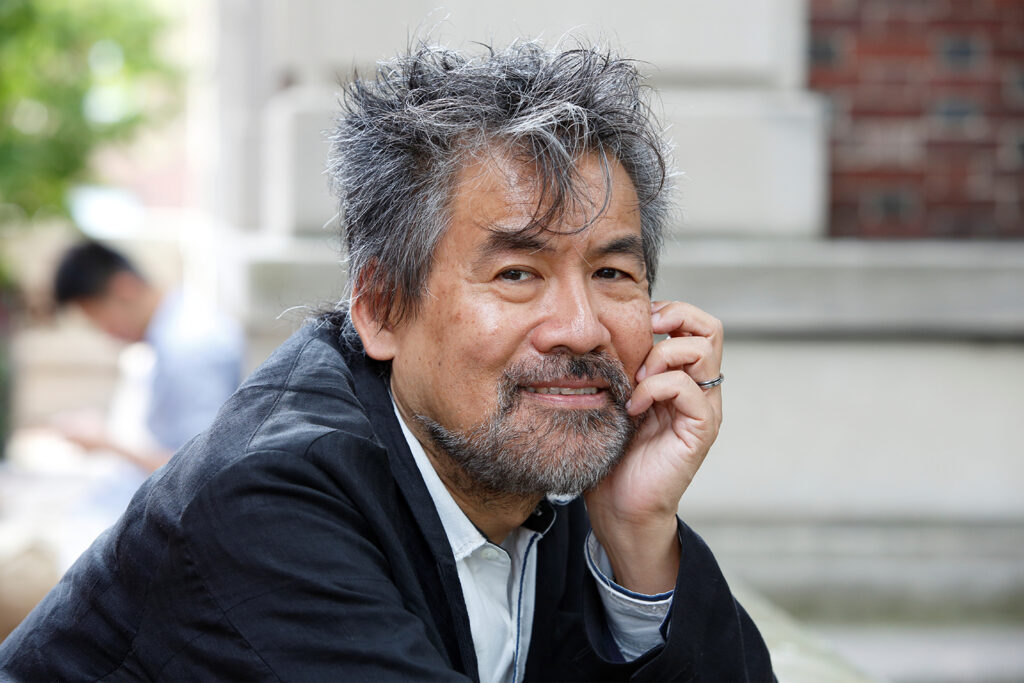Q&A with David Henry Hwang, ’79, Tony-winning playwright and 2024 Rathbun lecturer at Stanford
Hwang reflects on how Stanford influenced his career and his journey to success.
The career of acclaimed dramatist David Henry Hwang began as a Stanford student in the late 1970s.
“During my time at Stanford, I discovered what I wanted to do for my life’s work and who I am as an AAPI,” Hwang said.
Hwang, who won a Tony Award in 1988 for his play M. Butterfly, will return to campus on Friday, April 12, as the 2024 Rathbun Visiting Fellow to deliver the Rathbun Lecture on a Meaningful Life at Memorial Church at 6 p.m. A program that began in 2008, the lecture – which is open to the public – engages students and other members of the university community in conversations about their personal ethics, beliefs, and motivations.
Hwang’s works have spanned the stage, movies, opera, and television, often with themes of multiculturalism. A professor at the Columbia University School of the Arts, he is a three-time Tony nominee, a three-time OBIE winner, a Grammy winner, and a three-time finalist for the Pulitzer Prize in drama.
In a Q&A with Stanford Report, Hwang reflects on his time at Stanford and discusses what’s ahead for him.
How has your Stanford experience influenced your work beyond Stanford?
I entered [Stanford] thinking that I might like to try playwriting and during my senior year, wrote my first play to be produced Off-Broadway in NYC. Through playwriting, I also found that I was deeply interested in exploring my history and identity as an Asian American, a journey I pursue to this day. Not bad for four years!
You have said that failure can be a catalyst for later success. How has that played out in your life, from your time as a student through your professional life?
I like to say that if you don’t fail from time to time, you’re not working hard enough. Being a good artist means experimenting and taking risks. By definition, some of those will fail. Nobody likes to fail. But by trying to learn from these challenges, we can turn them into successes. Back at Stanford, the professor who became my mentor totally eviscerated a play I had written. That was hard to hear, but he was right. And I realized that what made me feel better was starting on my next play. Similarly, in my adult professional life, my two greatest failures have led to arguably my two greatest hits, which I’ll be discussing at MemChu.
What are some themes you plan to discuss in your lecture?
In addition to the importance of failure, Dean [Tiffany] Steinwert and I plan to cover themes such as: what is the most toxic emotion, why life is not fair and how this can work for you, the scariness of courage, and the importance of always listening to new music.
What’s next for you?
In May, my opera An American Soldier (with music by Huang Ruo) will open in New York. In August, a new version of my musical Soft Power (with composer Jeanine Tesori) will open in D.C. My 2007 play Yellow Face will be revived on Broadway in September, starring Daniel Dae Kim. Then in October, my opera Ainadamar (with music by Osvaldo Golijov) will receive its premiere at the Metropolitan Opera. Also in October, Huang Ruo’s and my opera adaptation of M. Butterfly will be performed in London and broadcast by the BBC. I’m also creating and show-running a new TV show, Billion Dollar Whale, and penning an Anna May Wong biopic to star Gemma Chan.
The Rathbun Lecture is a program of Stanford’s Office for Religious & Spiritual Life. Doors open at 5:30 p.m. and the event begins at 6 p.m. All are welcome. Tickets are not required.
